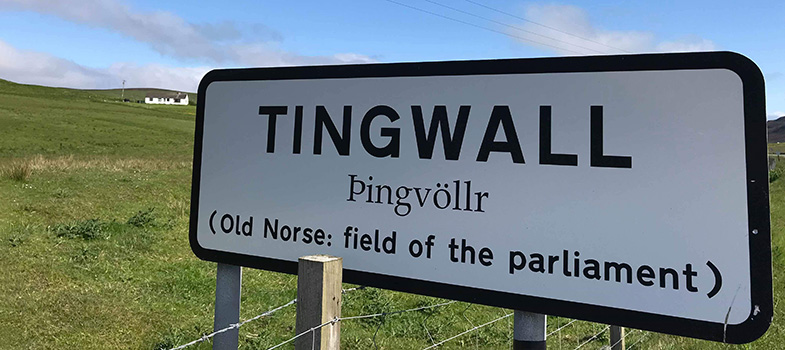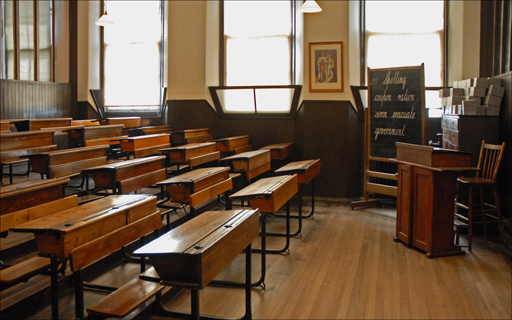3.1 Early education in Scotland
Scottish Education has a long and illustrious history. Scotland was the first nation to provide free universal education. The establishment of 'a school in every parish' in late Victorian Scotland was one of the great achievements of western civilisation.
It became a model for the rest of the world, and is part of the reason for Scotland's continuing success as a thriving post-industrial nation. More recently, fluctuations up or down the PISA [Tip: hold Ctrl and click a link to open it in a new tab. (Hide tip)] international education assessment scale have made headlines and resulted in a good deal of political point scoring.
But the fact remains that Scotland has an internationally strong education system that is founded on a long tradition and upheld by a dedicated and hardworking body of professionals.
For much of the 140-year history of universal education in Scotland, the Scots language has been completely absent. It may seem bizarre that early educationalists drawing up nineteenth century curricula would deliberately exclude local language from the classroom. In order to understand the situation, we need to consider the outlook of the Victorian educators, the value they placed on languages, and the purposes of the early curriculum.
This Victorian curriculum reflected a point in history when the populations of England, Scotland and Wales were largely occupied in industrial production at home, and colonial trade and enterprise abroad. The Union, and the British Empire were the structures around which life and trade revolved, and English, as the language of the larger, dominant partner, had become the official language of both Union and Empire.
It therefore made sense that the English language should take a prominent position in the new curriculum. Gaelic was associated with the past and with local parochialism, and had been temporarily outlawed following the Jacobite rebellions of the eighteenth century. It was granted no place in the nineteenth century Scottish curriculum; in fact the use of Gaelic in school became punishable by corporal measures.
Whether or not the early educationalists had any awareness of Scots Language we can only guess. Whether they considered it to be a language or a dialect, we do not know. But it was not included in the curriculum during the nineteenth century, while English was taught with a zealous enthusiasm.
Activity 4
To sum up the key points about the status of the three indigenous languages of Scotland in 19th century education, read each phrase below and match it to the language it relates to, according to the information provided in the text above.
a.
Scots language
b.
Gaelic language
c.
English language
The correct answer is c.
a.
Gaelic language
b.
Scots language
c.
English language
The correct answer is a.
a.
Scots language
b.
Gaelic language
c.
English language
The correct answer is b.
a.
Scots language
b.
English language
c.
Gaelic language
The correct answer is c.
a.
Gaelic language
b.
English language
c.
Scots language
The correct answer is c.
a.
Scots language
b.
Gaelic language
c.
English language
The correct answer is a.
a.
Gaelic language
b.
Scots language
c.
English language
The correct answer is a.
3. Introductory handsel

